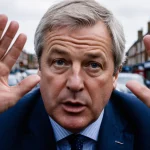Recent Political Developments in the UK
Recent months have seen notable political shifts within the UK, marked primarily by leadership changes and evolving government policies. These developments are pivotal in understanding the current landscape of UK politics. For example, cabinet reshuffles and party leadership contests have reshaped the executive’s composition, influencing both domestic governance and international engagement.
Government changes frequently impact the course of policy decisions, which in turn affect the UK’s stance on critical issues such as immigration, economic regulation, and security. In particular, Brexit updates continue to play a significant role. Despite the UK formally leaving the EU, ongoing negotiations and parliamentary debates have introduced policy adjustments that modify aspects of trade, border controls, and regulatory alignment. These shifts underscore the government’s adaptability to both public expectations and global realities.
In parallel : What are the trends in UK employment post-pandemic?
The domestic impact of these political shifts is profound. Legislative priorities have shifted toward strengthening national infrastructure and social services, reflecting government efforts to address public concerns in a post-Brexit climate. Internationally, these changes have recalibrated the UK’s approach, often moving toward a more assertive and independent foreign policy. Understanding such developments is crucial for grasping the trajectory of UK politics as the country navigates its evolving role on the world stage.
Key International Alliances Affected
Recent political shifts in UK politics have significantly influenced the nation’s international alliances, particularly with the European Union, the United States, and Commonwealth partnerships. These relationships are critical components of the UK’s global strategy and directly respond to government changes and Brexit updates.
Also read : What Challenges Face the UK’s Economy in the Post-Brexit Era?
The EU-UK relations continue to evolve post-Brexit, with ongoing negotiations shaping trade, security cooperation, and regulatory alignment. Despite the formal departure from the EU, the UK maintains a complex and dynamic partnership with the bloc, balancing sovereignty concerns against economic and security interests. This relationship reflects the broader political shifts, as the UK navigates maintaining close ties without full integration.
Meanwhile, the US-UK relations have been recalibrated in response to shifting diplomatic priorities. The UK’s foreign policy emphasizes strengthening this transatlantic alliance, recognizing the importance of cooperation on defense, intelligence, and economic fronts. The political changes have underscored a commitment to this partnership, ensuring that alliances align with both countries’ strategic interests.
The Commonwealth partnerships have gained renewed attention amid Brexit updates and shifts in UK politics. The government seeks to leverage these historic ties to bolster trade and diplomatic connections beyond Europe. Emphasizing shared values and economic potential, the UK positions the Commonwealth as a vital component in diversifying its international relationships and reinforcing its global role.
By adapting UK international alliances in line with recent political shifts and government changes, the country actively shapes its place in the global order while responding pragmatically to the consequences of Brexit.
Changes in UK Diplomacy and Foreign Policy
Recent political shifts within UK politics have directly influenced the nation’s diplomatic approach and broader international strategy. As the UK adapts to its evolving global role post-Brexit, key changes in foreign policy reflect a more autonomous and assertive posture. This reorientation is visible in how the government engages with major global powers and multilateral institutions.
In terms of diplomacy, the UK now prioritizes robust bilateral relationships alongside active participation in international organizations suited to its strategic interests. The shift involves balancing traditional alliances with fresh partnerships, ensuring that diplomacy serves national objectives efficiently. For example, the UK’s increased focus on security arrangements, especially in coordination with NATO and other defense forums, signifies a strategic effort to address emerging threats in a volatile global environment.
Moreover, the UK’s foreign policy now demonstrates a dual emphasis: maintaining close ties with long-standing allies like the US while simultaneously fostering deeper connections within the Commonwealth and other global regions. This reflects a nuanced strategy to diversify alliances without compromising existing diplomatic strengths. This diversification aligns with government changes that have made adaptability and global presence central pillars of UK international engagement.
Such recalibrations in diplomacy also extend to multilateral engagement, where the UK is reshaping its role to remain influential despite leaving the EU. The government actively seeks leadership in global issues like climate change, security, and trade, positioning itself as a key player in forums beyond Europe. These developments illustrate the dynamic nature of UK foreign policy in response to the political shifts and Brexit updates that have redefined the country’s external relationships and strategic priorities.
Trade Agreements and Economic Partnerships
Trade agreements have become a cornerstone of the UK’s strategy to redefine its international economic position in the wake of Brexit updates and ongoing political shifts. The UK’s trade policy is now primarily focused on establishing new bilateral and multilateral agreements that replace or supplement those once covered under EU membership. These efforts aim to secure market access while fostering economic alliances that reflect the country’s evolving geopolitical ambitions.
One significant adjustment following recent political shifts involves enhancing trade ties with Commonwealth countries. The UK government identifies the Commonwealth partnerships as strategic avenues to diversify trade routes and reduce dependency on previous EU-centric networks. This shift supports the broader goal of expanding economic alliances, providing fresh opportunities for sectors like technology, finance, and manufacturing.
Simultaneously, the UK is actively renegotiating or establishing trade agreements with key global economies beyond Europe, reflecting the country’s intent to maintain a competitive edge in international markets. Post-Brexit trade considerations underscore the importance of aligning agreements with national interests shaped by recent government changes. For instance, new trade deals are crafted to better accommodate the UK’s regulatory standards and economic strengths, ensuring more tailored and flexible partnerships.
The impact of political shifts on trade deals also involves intricate balancing acts. Negotiators must reconcile the imperative to protect domestic industries with ambitions to open markets and attract foreign investment. This complexity is heightened by Brexit updates that continually redefine the practical framework within which the UK operates. As a result, UK trade policy embodies a delicate mix of sovereignty assertion and pragmatic engagement with global economic partners.
In summary, the UK’s trade agreements and economic partnerships post-Brexit are a direct outcome of recent political shifts and government changes. By focusing on reviving and expanding relationships both within the Commonwealth and globally, the UK aims to solidify its position as a resilient and dynamic economic actor on the world stage.

